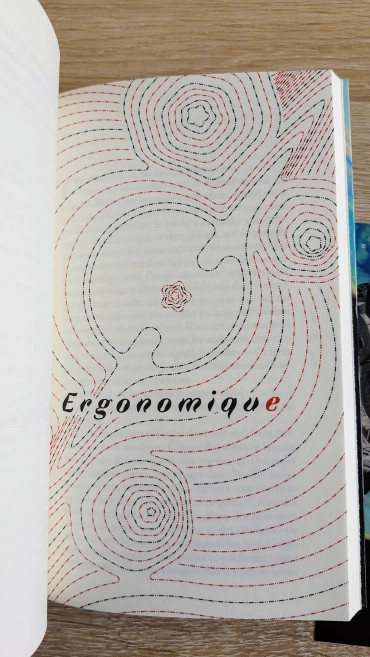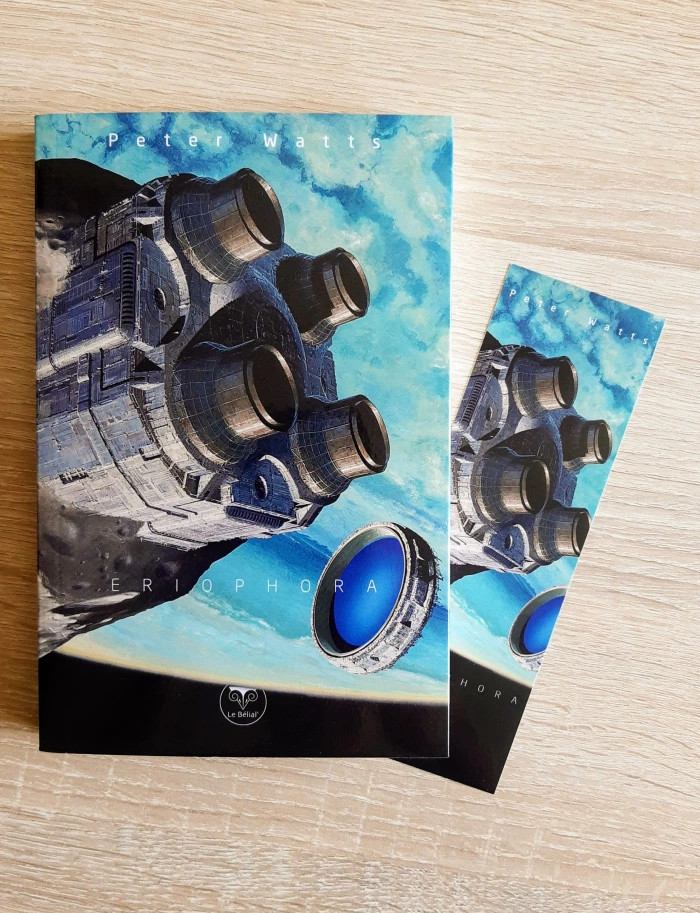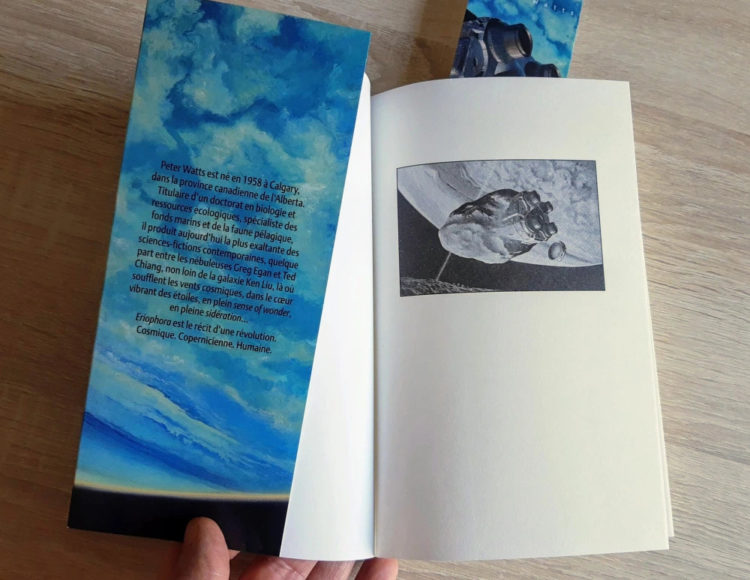The French love Peter Watts’ THE FREEZE-FRAME REVOLUTION
Peter Watts’ THE FREEZE-FRAME REVOLUTION was recently reprinted with much acclaim in French as Eriophora.
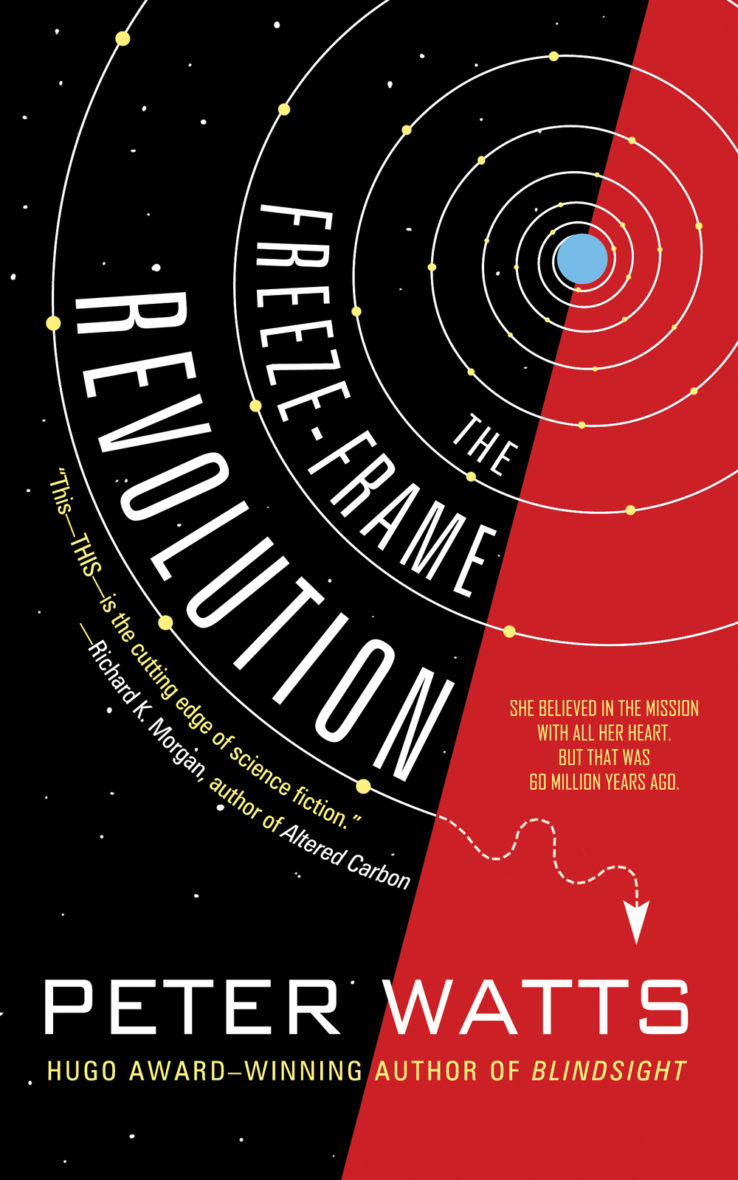
Cover by Elizabeth Story 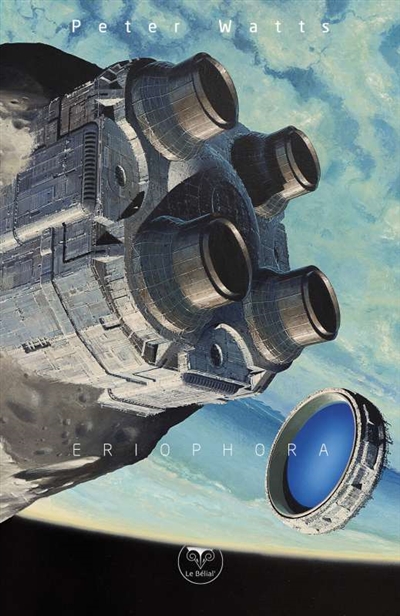
Cover by Manchu
L’ÉPAULE D’ORION finds the new edition remarkable.
An avid reader of the Canadian author’s writings, I reviewed this title in 2018, when it was released under the original title THE FREEZE-FRAME REVOLUTION. I don’t usually review novels first read in English twice, but I will make an exception for Eriophora because I find this edition quite remarkable.
This translation from French (and all the following quotes) are courtesy of Google
[…]
Eriophora is a breathtaking tale based on a skillful script, and offers readers a sense of utter awe at the extent of what it gives to imagine, both in space and time.
In addition, the publication of the novel by Le Bélial ‘benefits from a magnificent editing and printing job, from the flap cover designed by Manchu to the inside pages illustrated by Cedric Bucaille. The book as an object is simply superb. (One last word: if you are attentive while reading, you will be rewarded with a tasty revelation.)
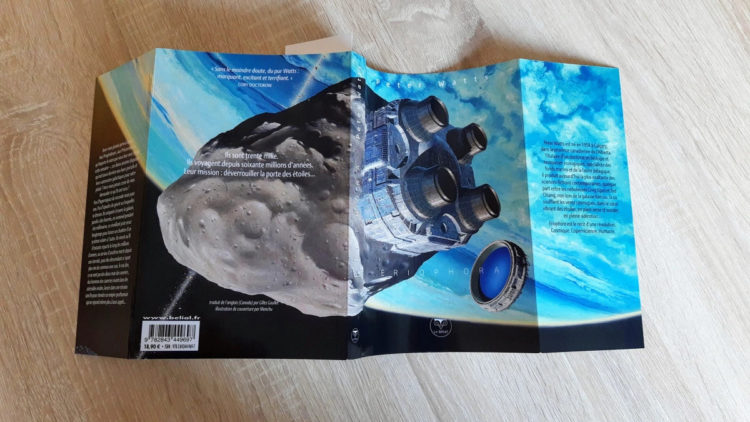
YOZONE praises the story.
Peter Watts exploits very well the problematic of such an expedition, the doubts that it can only arouse with the passage of millions of years. It literally takes readers on board, each having their own idea of the context.
“Eriophora” plays with space and time, but also with humans skimming the vastness of the cosmos. They have lost their illusions, they ultimately aspire to a normal life, even if they have never known it. Space is not crisscrossed at high speed, because distances are never abolished here. No frantic pace, but the whole is nonetheless fascinating, asking questions about the implementation of a network breaking free from light years and so often self-evident in space opera.
Signed Peter Watts , the demonstration is clear and masterful. A concentrate of relevant and beautiful SF!
UN PAPILLON DANS LA LUNE agrees.
For Hard-SF, this story is surprisingly accessible! From the start, we are absorbed by the liveliness of the narration. The spatial and temporal decor is laid and quickly becomes dizzying. Peter Watts avoids the pitfalls of the genre – as you drown in the technical and scientific data – for rather vulgari s er about it. He adds a touch of humor (often black) and a little poetry, all contributing to a smooth and pleasant reading.

